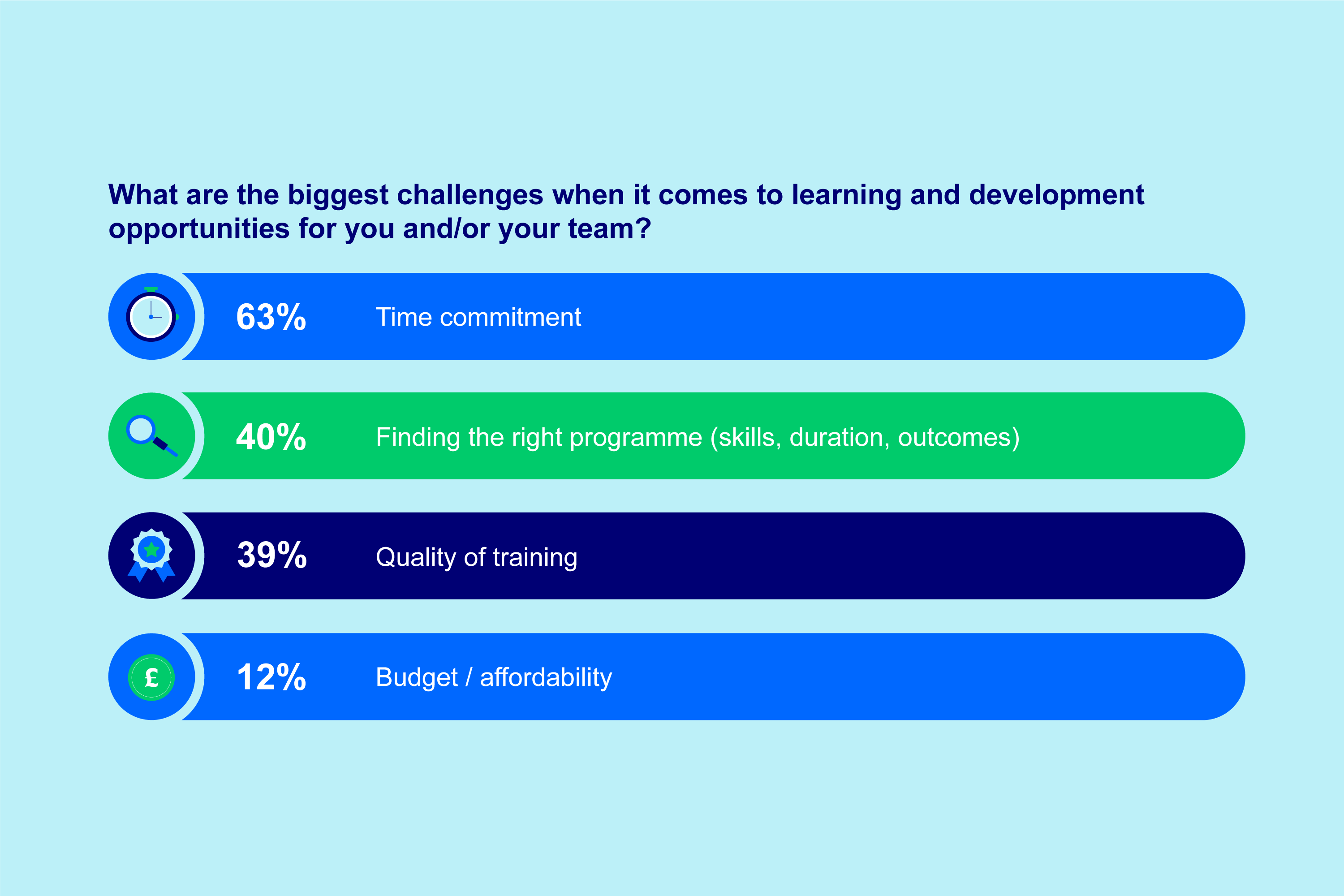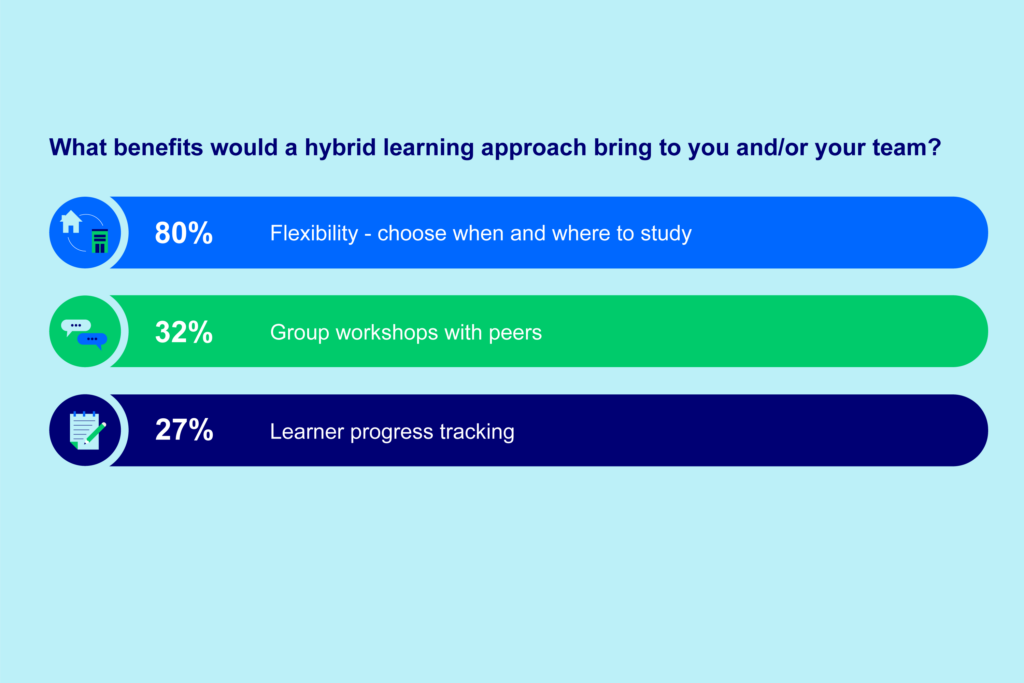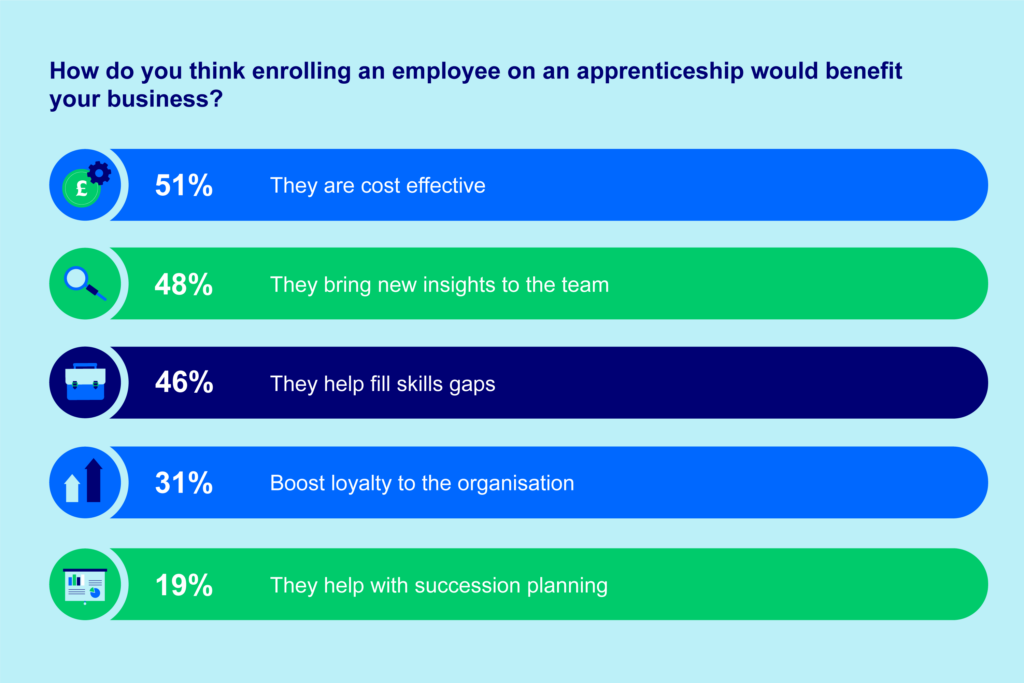‘Time commitment’ is the biggest L&D challenge for employers

At Mindful Education we work closely with a range of employers in the public, private and third sectors to deliver hybrid training solutions. Our experience is that employers appreciate the positive benefits of training and development for their team. However this seems to be at odds with a reported fall in the number of apprenticeship starts in England. We recently conducted a survey of 60+ accounting and finance employers in a bid to understand some of the challenges that employers are facing in delivering learning and development opportunities for staff.
Learning and development challenges
Time commitment came top of the list, with 63% of employers citing it as one of their biggest learning and development challenges. It is no wonder that many employers share this concern, especially when they are facing increasingly strict budgets and resources. However, many employers are unaware that an apprenticeship can actually boost team productivity in the short term. If a team member is given the opportunity to upskill, it means tasks can be delegated to them in a shorter space of time – ultimately benefiting the team and line manager.
41% of respondents said that finding the right programme (skills, duration, outcome) was one of the biggest challenges they faced when sourcing learning and development opportunities. This is a response our team at Mindful Education has frequently come across in our conversations with employers. There are so many different training opportunities available that training managers can be left feeling overwhelmed and unsure what path is right for them. Flexible, tailored solutions are becoming increasingly popular, especially if an employer is looking to enrol a group of employees onto a particular apprenticeship. Accreditation is also highly desired, and gives that quality stamp of approval for those looking to add recognition to a qualification.
The hybrid learning approach
80% of those surveyed thought that a hybrid learning approach would give flexibility to their team – letting them choose when and where to study. Hybrid learning has become an integral part of many learning and development strategies, especially since the post-2020 increase in hybrid and remote working.

At the 2024 Annual Apprenticeship Conference, Nick Wilson, Regional Account Manager at the Association of Accounting Technicians (AAT) described witnessing this rise. He explained that AAT is seeing blended delivery models increasingly becoming the norm for accounting learners, especially for organisations that have learners based throughout the country. In fact, the most popular filter on the AAT Find a Training Provider website search engine is ‘blended’, with nearly 80% of learners requesting blended learning.
Benefits to a business
Our employee survey showed that 51% of employers surveyed were aware that apprenticeships were a cost-effective learning and development route. In addition 48% of respondents agreed that apprenticeships also brought new insights to the team, and 46% were aware of how they could help fill skills gaps.
The expansion of apprenticeships into different areas of a business has helped address a number of key workforce challenges. The NHS have pioneered using apprenticeships to combat the workforce challenges they face, especially when it comes to skills gaps and succession planning. Joining one of our recent workshop panels Lucy Hunte, National Programme Manager – Apprenticeships, at NHS England explained how the apprenticeship route had been incredibly successful for those wanting to achieve qualifications, as they previously employees only had the option of self-funding or night school due to a lack of CPD budgets in the public sector.





